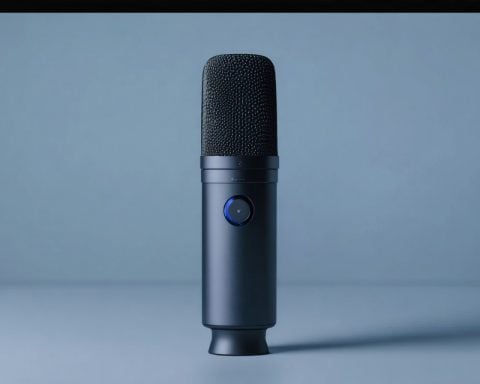Revolutionizing Transport with the eActros 600
Mercedes-Benz has recently commenced production of its innovative eActros 600 electric truck at the Wörth facility in Germany, marking a significant step towards sustainable logistics. This week, the company celebrated the delivery of the initial units to nine transport companies, with plans to roll out a total of 50 trucks by year’s end.
The eActros 600 stands out with its impressive 500-kilometer range on a single charge, making it an ideal solution for long-distance transportation. Mercedes-Benz strives to electrify all delivery traffic to the Wörth plant by 2026, reflecting a commitment to reducing carbon emissions in heavy-duty transport across Europe.
The first trucks collected by customers will aid in operations at the Wörth production facility, set to be operational by the second quarter of next year. Additionally, these businesses benefit from subsidies aimed at encouraging clean alternative fuels and improved charging infrastructure.
The eActros 600 features over 600kWh of battery capacity and, with strategic charging during breaks, it can travel over 1,000 kilometers daily. A recent test drive covering 15,000 kilometers through 22 countries has validated its capabilities.
To support this electric initiative, the Wörth plant has expanded its charging infrastructure, introducing new fast-charging stations, ensuring efficient and sustainable logistics. The plant also continues to manufacture the diesel Actros L truck alongside this electrifying venture, demonstrating its flexibility in production.
Electrifying the Future: Insights into the eActros 600 Truck
Mercedes-Benz’s eActros 600 is making waves in the heavy-duty transport sector with its groundbreaking electric truck, which recently commenced production at their Wörth facility in Germany. This move signifies not just an advancement in their logistics operations but a comprehensive strategy to embrace sustainability in transportation.
Key Features of the eActros 600
The eActros 600 boasts an impressive 500-kilometer range per charge, positioning it as an optimal partner for long-distance logistics. This truck is equipped with over 600 kWh of battery capacity, facilitating long trips through strategic charging during required breaks. With the capability to cover an impressive 1,000 kilometers in a day, it addresses the challenges often faced by traditional fuel trucks, offering a sustainable solution without sacrificing performance.
Specifications and Innovations
– Battery Capacity: Over 600 kWh
– Range on Full Charge: Up to 500 kilometers
– Daily Travel Potential: Over 1,000 kilometers with optimal charging
– Charging Infrastructure: Expansion with new fast-charging stations at the Wörth plant
Mercedes-Benz has conducted thorough testing, with a notable trial involving a 15,000-kilometer journey across 22 European countries, effectively demonstrating the truck’s performance and reliability under various conditions.
Pros and Cons of the eActros 600
Pros:
– Environmentally friendly alternative to diesel trucks, supporting the reduction of carbon emissions.
– Strong battery capacity with long-range capabilities.
– Enhanced logistics efficiency with fast-charging options.
Cons:
– Initial purchasing costs may be higher compared to traditional trucks.
– Dependence on charging infrastructure, which may not be uniformly available in all regions.
– Requires changes in operational logistics to accommodate charging schedules.
Use Cases
The eActros 600 is ideal for companies engaged in:
– Urban freight deliveries where sustainability is a key concern.
– Long-haul transportation operations that can benefit from the truck’s range and charging strategy.
– Companies looking to enhance their corporate social responsibility (CSR) initiatives by reducing their carbon footprint.
Market Trends and Predictions
As the logistics industry continues its shift towards electrification, the eActros 600 exemplifies a larger trend influenced by regulatory pressures and consumer demand for sustainable practices. Analysts predict that by 2030, a significant portion of new heavy-duty vehicles will be electric, mirroring the commitments of manufacturers like Mercedes-Benz.
Sustainability and Future Developments
Looking ahead, Mercedes-Benz aims to electrify all delivery traffic to the Wörth plant by 2026. The introduction of supportive subsidies for clean fuel technologies will further accelerate this transition, making electric trucks a more viable choice for transport companies.
For more information about innovations in electric transport and the future of logistics, visit Mercedes-Benz.













